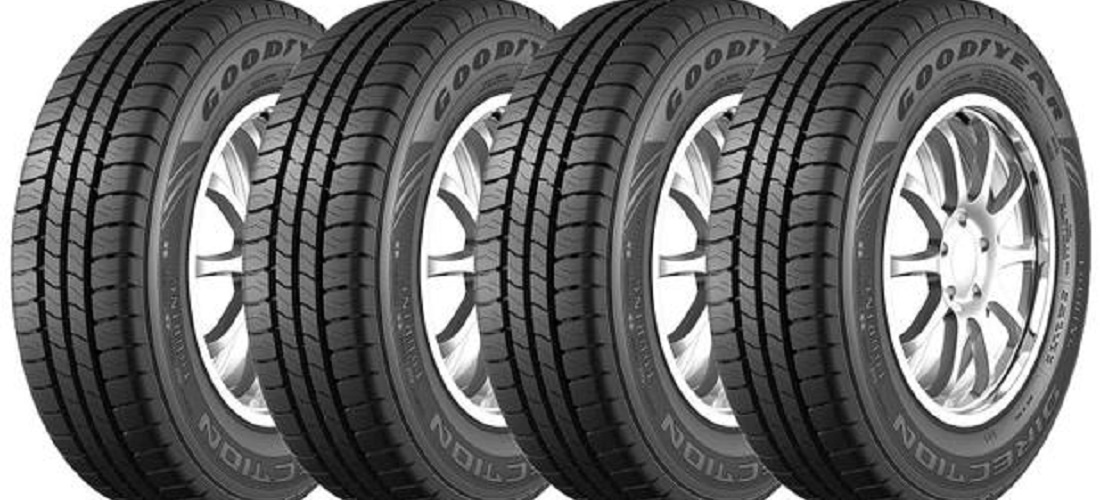
Tire industry pushes Brazil’s gov’t to revise zero import tax policy
Oct, 26, 2022 Posted by Gabriel MalheirosWeek 202243
Brazilian tire producers request that the federal government reverse its decision to eliminate the import tax on tires used in cargo vehicles approved at the beginning of last year. They claim that the industry has been harmed by imported goods that do not adhere to environmental standards.
The federal government reduced to zero the 16% rate charged on imports of truck tires in early 2021 at the request of the Ministry of Infrastructure, at a time when truck drives were calling for strikes in many parts of the country, without, however, securing the same adhesion to the movement as seen in 2018.
The National Association of the Tire Industry (Anip), which is once again trying to dialogue with the government to reverse the tax cut, cites that the measure is encouraging the deindustrialization of the sector. Truck drivers, in turn, doubt that the lower tax is effective.
“The zero rate policy adopted by the Brazilian government is incomprehensible. Instead of stimulating production, employment, and investments, the Ministry of Economy opted for a strategy that, ultimately, accentuated the country’s deindustrialization process,” said the president of Anip, Klaus Curt Müller, in a note.
According to Litti Dahmer, director of CNTTL, an entity that brings together self-employed truck drivers, the Import Tax reduction “had no impact” because importers and intermediaries in the chain captured the lower price margin. However, he maintained that tire prices would rise sharply if the tax rate were increased again.
“It’s just like Petrobras with diesel. When the price drops at the refinery, it doesn’t show on the pumps, and when refinery prices go up, consumers pay even more,” said Dahmer.
Dahmer commented that at the time the tax reduction was adopted, at the height of the comic impacts of the pandemic on the supply chain, the national market was dealing with a lack of tires and a rise in product prices of up to 60%.
See below the track record of tire imports (HS 4011 and 4012) by Brazil from Jan 2019 to Aug 2022, according to DataLiner data.
Brazilian Tire Imports | Jan 2019 – Aug 2022 | TEUs
Source: DataLiner (click here to request a demo)
Services
Currently, according to the director of CNTTL, the supply of tires in the country is normal and prices have dropped.
Anip cited government data to say that 432,000 tires were imported in August alone, the largest volume in the last 12 years for the month.
The sector predicts a decline in domestic cargo tire sales of about 503,400 units in 2023, which would result in a loss of earnings of about 500 million reais, according to the president of Anip.
In 2021, the loss of sales in units due to competition from imported units was 300 thousand units, said the association.
Dahmer mentioned that the price of a domestic tire used on a truck tractor is around 2,800 to 3,100 reais, while imported ones are about 2,000.
According to the director of CNTTL, the math adds up “depending on the size of the truck, the use, and the road,” he said, citing issues such as durability, which may be shorter than the national ones.
Since the imported tires are supposedly less durable and allow for fewer repairs, Anip estimates that they cost truck drivers 0.35 reais more per kilometer traveled. “The price may be lower at first, but over the long run, the truck driver pays more for the imported one,” Müller said.
The entity expects the national tire industry to have zero growth in 2022.
Source: Money Times
To read the full original article, please go to: https://www.moneytimes.com.br/industria-de-pneus-quer-revisao-de-imposto-de-importacao-zero-para-pneus-de-carga/
-
Grains
Apr, 11, 2023
0
Soy: Paraguay 2023/24 output should reach 10 million T
-
Grains
Apr, 05, 2024
0
Conveyor belt at Port of Paranaguá is closed due to explosion risk
-
Ports and Terminals
Oct, 17, 2024
0
Itapoá Port announces Phase Four of its Expansion at some R$ 500 million
-
Ports and Terminals
Jul, 11, 2024
0
Port of Montevideo sets record for container throughput in first half of 2024


